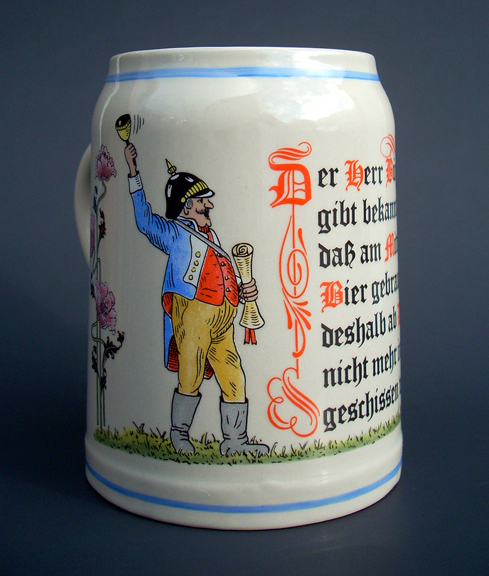The German Beer Purity Law of 1516 (Reinheitsgebot)
The German Beer Purity Law, known as the Reinheitsgebot, was a regulation enacted in Bavaria in 1516. It is one of the world's oldest food-safety laws. The original law stated that beer could only be brewed with three ingredients: water, barley, and hops.
This regulation ensured the quality and safety of beer for consumers and remains a landmark piece of German brewing history.
What is the Bavarian Purity Law of 1516?
On April 23, 1516, Bavarian dukes Wilhelm IV and Ludwig X enacted the Reinheitsgebot in the city of Ingolstadt. The goal was to standardize beer production. By limiting the ingredients, the law guaranteed a consistent, high-quality product and eliminated the use of cheaper, sometimes dangerous, additives.
Notably, the original law did not include yeast. At the time, its role in fermentation was not yet understood, even though it was a critical component of the brewing process.
Why Was the German Purity Law Created?
The Reinheitsgebot was established for two primary reasons:
- Consumer Protection: Before 1516, some brewers used questionable ingredients to preserve beer or enhance its intoxicating effects. These included everything from roots and herbs to poisonous mushrooms and animal products. The law protected drinkers by guaranteeing the beer was made from only pure, safe ingredients.
- Price Control: The law prevented brewers from using valuable grains like wheat and rye. This reserved those crops for bakers, which helped keep the price of bread affordable for the public.
Is the German Purity Law Still in Effect Today?
No, the original Reinheitsgebot from 1516 is no longer part of German law. It was officially replaced in 1993 by the Provisional German Beer Law (Vorläufiges deutsches Biergesetz).
The new law is slightly less strict, allowing for yeast (now understood), as well as wheat and different types of sugar. However, many German breweries voluntarily continue to brew according to the traditional 1516 law as a mark of quality and commitment to tradition.
Celebrate Beer History
Commemorate one of the most important laws in brewing history. Shop for 500 Year Anniversary German Beer Purity Law Beer Steins and Mugs.
Frequently Asked Questions About the Reinheitsgebot
What were the original ingredients in the German Beer Purity Law?
The original law of 1516 stipulated that beer could only contain water, barley, and hops.
Is the Reinheitsgebot still law in Germany?
The original Reinheitsgebot is no longer in effect. It was replaced by a more modern law in 1993, but many German brewers still follow the traditional recipe.
Why was yeast left out of the original Purity Law?
Yeast was not included because its existence and function in the fermentation process had not yet been discovered by scientists in 1516.
What is the difference between the Bavarian Purity Law and the German Purity Law?
They are essentially the same. The law originated in Bavaria in 1516 and was later adopted across all of Germany in 1906, at which point it became known as the German Purity Law.
Shop for 500 Year Anniversary German Beer Purity Law Beer Steins and Mugs

German Purity Law Beer Mug with an amusing take on the original law.






